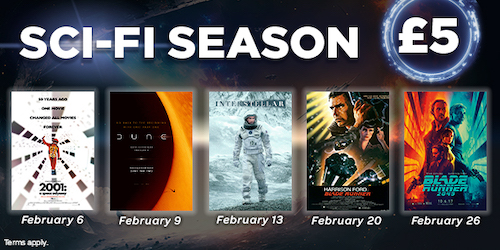
In its grandest moments, the science-fiction genre catapults us into outlandish and breathtaking scenarios that speak directly to the human experience. This February, we're thrilled to be presenting five sci-fi masterpieces on the big screen at Cineworld as part of our Sci-Fi Season, and tickets are just £5.
Each of the following movies has expanded our minds, taken us beyond our known galaxy and into vivid dystopian futures. This genre is tailor-made for the big screen so scroll down for all the essential information on films and dates at a Cineworld near you.
Is this your first time watching one or more of these movies? Then prepare to be blown away.
1. Blade Runner: The Final Cut (screening February 20th)
After the release of Blade Runner, it simply wasn't possible to envisage the future as anything other than a rain-drenched, neon-inflected nightmare. Ridley Scott's loose adaptation of Philip K. Dick's novel Do Androids Dream of Electric Sheep is set in the bleak Los Angeles of 2019 where ex-'blade runner' (bounty hunter) Rick Deckard (Harrison Ford) is given an important task. He must hunt down and destroy four humanoid robots known as replicants who have returned to Earth in search of their creator.
Several decades on, Blade Runner's sense of style is indelible, from the art-deco apartments and the blaring digitised billboards to the melancholic Vangelis soundtrack, which laments the loss of humanity amidst an urban sprawl via bold saxophone and synthesised arrangements. Jordan Cronenweth's multifaceted cinematography and Laurence Paull's claustrophobic production design work hand in hand with Scott's direction to craft a future that feels palpably, tangibly physical.
The making of Blade Runner was famously troubled, including arguments between Scott and Ford, and the movie's release history is no less complicated. Several iterations of the film have been released throughout the decades including Scott's 1992 Director's Cut. We're presenting the Final Cut of the movie, originally released in 2007, and described by Scott as the definitive take on the material.
The Final Cut not only glistens and resonates in terms of its visual and aural presentation, but also cleans up nagging, longstanding editorial mistakes including the shot of replicant Zora (Joanna Cassidy) crashing through a plate glass window. All that aside, one shouldn't resist the opportunity to see this influential masterpiece back on the big screen where it belongs.
2. Blade Runner 2049 (screening February 26th)
Denis Villeneuve develops and enhances the existing Blade Runner mythology, delivering a sequel that some claim is superior to the classic original. As with so many of Villeneuve's movies, the eye is tantalised by breathtaking landscapes while the brain is teased with complex discourse as to the nature of memory and soul.
Picking up 30 years after the first Blade Runner movie, we're introduced to new blade runner K (Ryan Gosling) whose latest assignment leads him down a rabbit hole of revelation. Along the way, K unlocks more about his own mysterious past and his path then crosses with original blade runner Deckard (Harrison Ford) who has his own demons to reconcile with.
Blade Runner 2049 is the best kind of legacy sequel, one that honours the aesthetic of its predecessor while setting off on fresh and engrossing thematic tangents. The Los Angeles of 2049 is no less bleak than what came before, but there are trace elements of compassion and decency poking through Villeneuve's canvas that point toward redemption.
BOOK BLADE RUNNER 2049 TICKETS
Previous screenings
2001: A Space Odyssey
Stanley Kubrick's dense, overwhelming and compelling sci-fi epic remains for many the high watermark of the genre. If this is your first time watching 2001: A Space Odyssey, then don't go in expecting a traditional blow-by-blow narrative.
Instead, prepare to engage with something philosophically and emotionally wondrous as Kubrick catapults us from the dawn of mankind through the Stargate into untapped realms of possibility.
2001 is painted on a wondrous scale, the sort that puts many contemporary movies to shame. Adapted from Arthur C. Clarke's story of the same name, it utilises groundbreaking practical effects from Douglas Trumbull and has cemented several of the most enduring images in science fiction history.
From the bone transitioning into the spaceship to the sound of The Blue Danube to the probing sentient menace of the A.I. known as Hal (voiced by Douglas Rains), 2001 is mysterious and discernible in one fell swoop.
DISCOVER THE BEST SCENES FROM 2001: A SPACE ODYSSEY
Dune
If you're getting primed for the release of Dune: Part Two this March, then a big-screen rewatch of the first instalment is in order. Director Denis Villeneuve further cemented his status as a modern sci-fi master with this lavish adaptation of Frank Herbert's seemingly unfilmable book, which already yielded David Lynch's doomed version in 1984.
Villeneuve's mastery of the physical environment and character depth is evident right from the start as he spins the saga of the planet Arrakis. The planet, known colloquially as 'dune', is the only known source of the spice melange, which is coveted by the Spacing Guild and the warring intergalactic Houses for its ability to fold space-time.
Into this conflict comes Paul Atreides (Timothée Chalamet), heir to his house and sworn enemy of current Arrakis incumbents the Harkonnens. When Paul and his seer mother Lady Jessica (Rebecca Ferguson) are betrayed by the Harkonnens and forced to seek refuge with the indigenous Arrakis people known as the Fremen, it kick-starts a truly gargantuan story of destiny and recrimination.
All of this encompasses just one half of the initial Dune story, and we haven't even mentioned the awesome spectacle of the rampaging Arrakis sandworms. Villeneuve sets out his table in spectacular style and Dune: Part Two will act as the action-packed payoff, before the planned Dune: Messiah adaptation in the (hopefully) not-too-distant future.
Interstellar
Director Christopher Nolan fashions an awe-inspiring feature-length ode to his hero Stanley Kubrick in this story of one man's quest to save mankind. Matthew McConaughey plays the farmer turned astronaut named Cooper who must leave a blighted Earth and his family behind to travel through a wormhole and discover a new home for humanity.
This premise is the catalyst for Nolan's teeming and ambitious tale, now 10 years old, that he developed with renowned astrophysicist Kip Thorne. Interstellar was acclaimed by scientists for its relatively plausible depiction of black hole physics, but whether you're into the science or not, you can simply appreciate a bold story conveyed on the biggest possible canvas.
Nolan lets his imagination run riot as waves turn into towering mountains and time dilation causes poignant age disparities across the ocean of space and time. Centrally, the movie is a father-daughter bonding story between Cooper and his daughter Murph (played as an adult by Jessica Chastain) and this underpins both the science and the spectacle with recognisable human emotion.
Come for Nolan's reputation as a purveyor of smart, ambitious sci-fi cinema. Stay for the breathless visuals and euphoric, organ-laden score from Nolan's regular collaborator Hans Zimmer.
HANS ZIMMER'S BEST INTERSTELLAR SOUNDTRACK MOMENTS
If you're an Unlimited member, you can enjoy all of these landmark sci-fi movies with your Unlimited card. And if you're feeling inspired to sign up, then be sure to do so via the link below. For less than the cost of two tickets per month, you'll reap the benefits of advance screenings, 10% off your favourite snacks and drinks and a whole lot more.
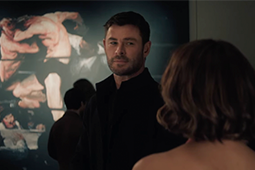
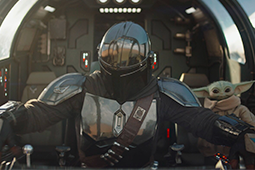
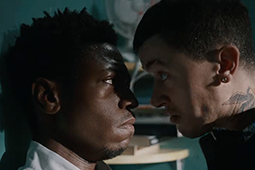
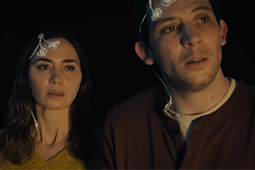
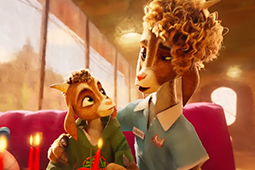
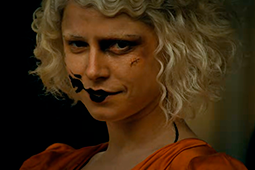
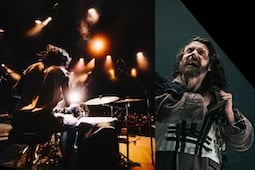
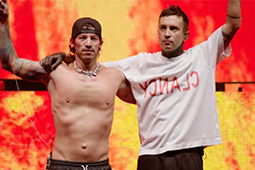
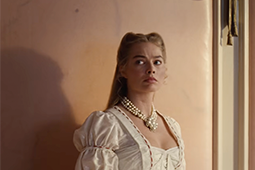
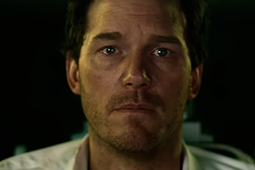
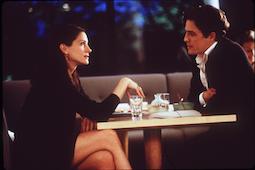


.jpg)
.png)






